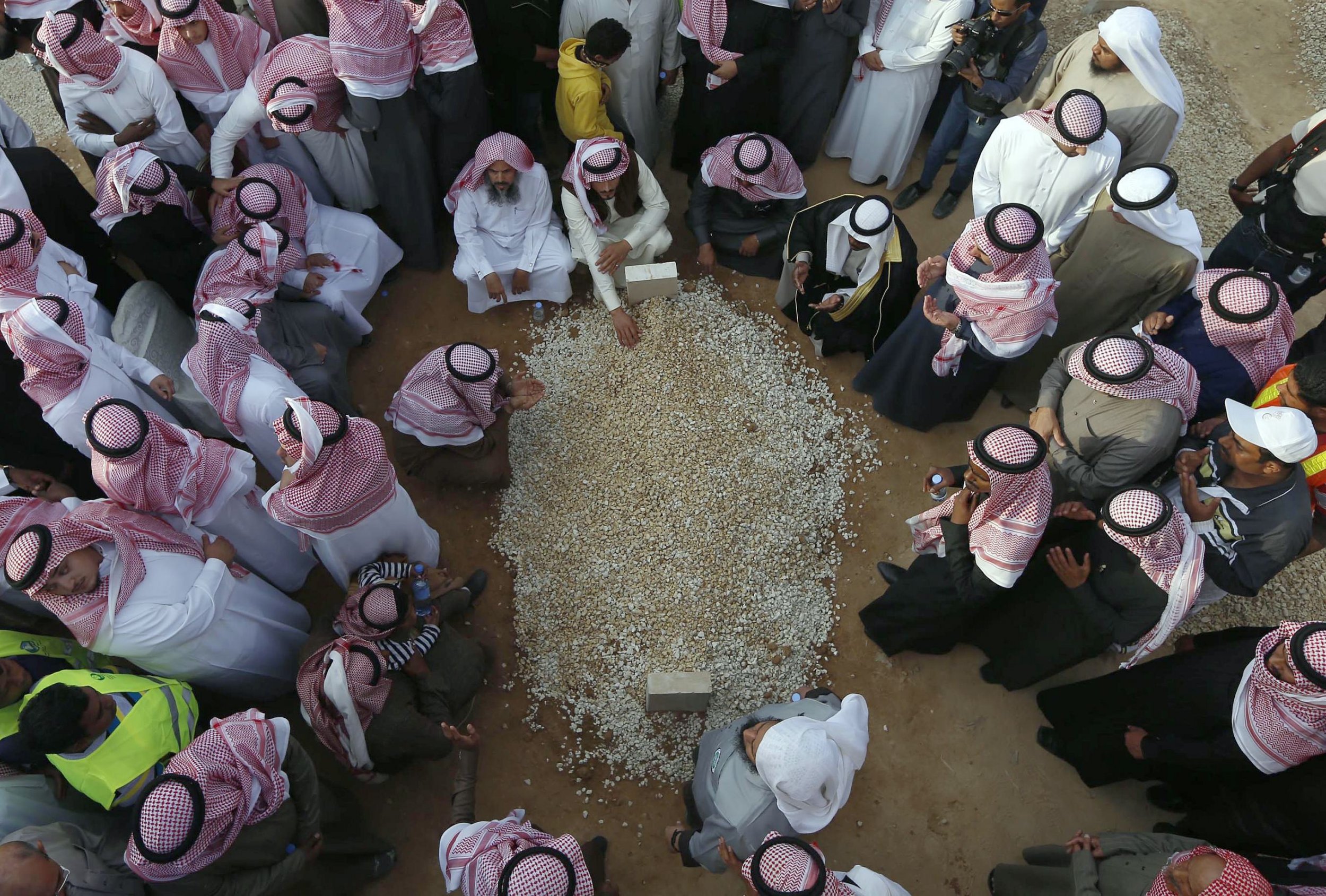
King Abdullah, the former monarch of Saudi Arabia, has been buried in an unmarked grave, the Saudi government announced today.
King Abdullah died early this morning aged 90 after a short bout of pneumonia. However, in accordance with the Saudi royal family's ultra conservative Muslim faith, often referred to as Wahhabism, there has been no official period of mourning and a public funeral will not be held, despite the fact Abdullah was head of state for almost 10 years.
Instead he was buried in a modest ceremony - his body was bathed in the manner in keeping with Islamic ritual and wrapped in white cloth before he was buried in Riyadh's Al Oud cemetery where he joined previous Saudi monarchs, also interred in unmarked graves. Prayers were led by his brother and successor, King Salman, in a ceremony which was attended by members of the al-Saud family and prominent Muslim heads of state, Reuters reports.
Wahhabism, an ultra-conservative form of Sunni Islam, is the dominant faith of the Saudi state, adhered to by its ruling family, the House of Saud.
Dr Tony Street, an expert in Islam from Cambridge University, says that when it comes to burial, Wahhabists are "hostile to leaving anything that might become a site for veneration", and that they characterise their belief as "simply a commitment to utter and absolute Tawhid, the affirmation of God's supremacy".
Interestingly, its followers often reject the term Wahhabi, as the word refers to the work of 18th century Muslim scholar Muhammad ibn Abd al-Wahhab, after whom the movement is named. "I think they just prefer to be called Muslims," says Dr Street. He explains that calling something or someone Wahhabi "is awarding exactly the kind of eminence to a Muslim that they try to avoid. You don't want to start setting up people in pseudo-hagiographical positions."
King Salman has publicly rejected the term saying that it is unrepresentative of modern Saudi society. Speaking to daily Saudi Arabian newspaper Okaz, he said: "Enemies of the Sheikh Muhammad ibn Abd Al-Wahhab labelled his teaching as Wahhabism, a doctrine that doesn't exist here."
Al–Wahhab was also buried in an unmarked grave. In September last year controversy arose after an Islamic academic in Saudi Arabia proposed that the Prophet Muhammad's body be transferred from the al-Masjid al-Nabawi mosque in Medina, to an unmarked grave nearby.
Andrew Hammond, a policy fellow at the European Council on Foreign Relations, explains that this argument over the moving of Muhammad's body is a point of contention in Islam, along with the fact that Saudi Arabia hosts two holy Islamic cities, Medina and Mecca. Wahhabists in the country "have to put up with this distorted vision of the Muslims who don't do things their way", says Hammond, referring to the Wahhabist dislike of worshipping corporeal entities, as opposed to purely spiritual ones. "It particularly bugs them when they see someone venerating his body," he adds.
King Abdullah began his reign in 2005 after the death of King Fahd, his half brother. Following Abdullah's death this morning he was immediately succeeded by younger half brother King Salman. Salman, the last of the sons of the founder of the kingdom, King Abdulaziz, was quick to appoint a Deputy Crown Prince - Prince Mohammed bin Nayef - to mark a clear line of succession into the next generation. Despite this smooth succession oil prices have risen as Abdullah's death created uncertainty in the market. Saudi Arabia is the world's top oil exporter .
Salman was quick to pledge the continuation of existing energy and foreign policies and also appointed his own half-brother Muqrin as heir in order to calm worries about future successions.
Salman has inherited the problems that Abdullah has been facing over the last few months including plunging international oil prices, Saudi's largest export, and the threat of the Islamic State, who have pledged to overthrow the Al Saud family due to their participation in Obama's anti-ISIS coalition.
Uncommon Knowledge
Newsweek is committed to challenging conventional wisdom and finding connections in the search for common ground.
Newsweek is committed to challenging conventional wisdom and finding connections in the search for common ground.
About the writer
To read how Newsweek uses AI as a newsroom tool, Click here.








